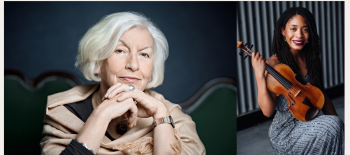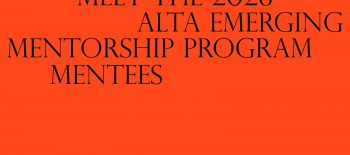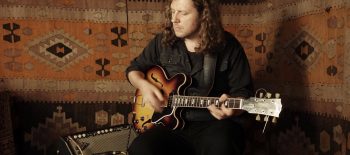East Coast Premiere of HAN!
TICKETS HAN! at White Eagle Hall
February 9, 2023 at 7pm ET
337 Newark Ave, Jersey City, NJ 07302
TICKETS Three Days Workshop at JCTC Studios
February 14-16 at 6-9pm ET
165 Newark Avenue, Jersey City, NJ 07302
TICKETS HAN! at La MaMa Experimental Theatre Club
February 23-March 12, 2023
66 E 4th St, New York, NY 10003
TICKETS The Potential of Song: A Masterclass with Thomas Richards
Assisted by Jessica Losilla-Hébrail and Hyun Ju Baek
February 28-March 2, 2023 at 11am-2pm ET
La MaMa Experimental Theatre Club
66 E 4th St, New York, NY 10003
TICKETS Coffeehouse Chronicles #170: Jerzy Grotowski and Thomas Richards
March 4, 2023 at 3pm ET
La MaMa Experimental Theatre Club
66 E 4th St, New York, NY 10003
Columbia College in Chicago: Workshop with Students
March 14-16, 2023
600 S Michigan Ave, Chicago, IL 60605
TICKETS HAN! at Chopin Theatre
March 17-19 and March 24-26, 2023
1543 West Division, Chicago, IL 60642
HAN! is directed by Thomas Richards, theater director and former Artistic Director of the Workcenter of Jerzy Grotowski and Thomas Richards in Pontedera, Italy. There, he began as the protégé and then essential collaborator of famed Polish director and performing arts theorist Jerzy Grotowski, considered to have been one of the greatest reformers of 20th century theater and one of the founders of experimental theater.
“[Han] is not an easy word to understand. It has generally been understood as a sort of resentment. But I think it means both sadness and hope at the same time. You can think of Han as the core of life, the pathway leading from birth to death…” Park Kyon-ni (1994)
An ancient dance is performed under a neon light. A virgin ghost stares out of the TV. A baby left alone in an apartment meditates on the nature of solitude. A woman explores memories of her life in relation to the Korean concept of Han.
Our heroine moves back and forth between the ancient myths of “Gojoseon,” the era of her dead grandmother, her mother’s past and her own life. Three generations of Korean women bound together in the “resilient silence” of Han. How will she navigate the sea of expectations that life, family, and nation have thrown her way? Through her struggle to understand the complexity of her own Han, which ignites a fire in her mind, we are carried into a dynamic meditation that explores the no man’s land that exists between myth and modernity, as we weigh the relation between suffering, sacrifice, and destiny.
Directed by Thomas Richards; Assistant Directors: Cécile Richards and Jessica Losilla-Hébrail
The show is in Korean with English subtitles performed by Hyun Ju Baek.
TICKETS Three Days Workshop
February 14-16 at 10am-1pm ET
JCTC Studios
165 Newark Avenue, Jersey City, NJ 07302
The Potential of Song: A Masterclass with Thomas Richards
assisted by Jessica Losilla-Hébrail and Hyun Ju Baek
This Masterclass, led by Thomas Richards and assisted by members of Theatre No Theatre, will introduce each participant to an exploration of work on songs of tradition.
The workshop will consist of practical sessions of work on songs coming from Afro-Caribbean and African traditions, which have been at the core of Richards’ performing arts research for over 30 years. Such work on song explores the potential impact that the rhythmic and melodic qualities of certain songs of tradition can have on the persons who sing.
About Thomas Richards
Thomas Richards was born in 1962 in New York City. He began working with Jerzy Grotowski at the University of California-Irvine, and followed him to Italy in 1986, where he worked first as his assistant at the Workcenter of Jerzy Grotowski, then went on to become a group leader, creator, director, and finally Artistic Director. In 1996, Grotowski changed the name of the institution to The Workcenter of Jerzy Grotowski and Thomas Richards, because, as he indicated, the direction of the practical work had already concentrated itself in Richards’ hands. Mr. Richards, who holds a B.A. from Yale University, an M.A. from the University of Bologna, and the Ph.D. from the University of Paris, is the author of three books: At Work with Grotowski on Physical Actions (1993), The Edge-Point of Performance (1995), and Heart of Practice: Within the Workcenter of Jerzy Grotowski and Thomas Richards (2008). Following Grotowski’s death in 1999, Richards took over as director of the Workcenter of Jerzy Grotowski and Thomas Richards and together with Mario Biagini he is considered Grotowski’s ‘universal heir’. As Grotowski wrote, “The nature of my work with Thomas Richards has the character of ‘transmission’; to transmit to him that to which I have arrived in my life: the inner aspect of the work.”
In January of 2022 Richards closed the doors of the Workcenter of Jerzy Grotowski and Thomas Richards and together with several ex-colleagues of the Workcenter opened the new Cultural Association, Theatre No Theatre, which has inherited its artistic existence directly from the Workcenter, since it is dedicated to supporting the new theatre research of Thomas Richards.
About Jerzy Grotowski
Jerzy Grotowski (born August 11, 1933, Rzeszów, Poland—died January 14, 1999, Pontedera, Italy) Considered one of the most important and influential theatre practitioners of the 20th century, Jerzy Grotowski revolutionized contemporary theatre. Beginning in 1959 with his early experiments in the Polish town of Opole and later with the Polish Laboratory Theatre in Wroclaw, Grotowski changed the way Western theatre practitioners and performance theorists conceive of the audience/actor relationship, theatre staging, and the craft of acting. This phase of his theatrical work, also called “poor theatre,” was the basis for one of the most influential theatre books of the 20th century: Towards a Poor Theatre (1968). After abandoning the “theatre of productions,” Grotowski continued to push the boundaries of conventional theatre, first in his paratheatrical work, and later in his performance research, which took him to India, Mexico, Haiti, and elsewhere, in search of the traditional performance practices of various cultures (Theatre of Sources, 1976-82). This work led Grotowski to his identification of particular abiding elements of ritual traditions (Objective Drama, 1983-86). In the final phase of his work Grotowski explored the far reaches of the performance continuum, which he traced from “Art as presentation” toward what has been called “Art as Vehicle.”




